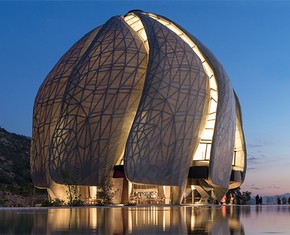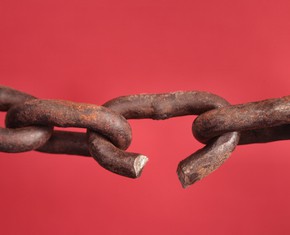The views expressed in our content reflect individual perspectives and do not represent the authoritative views of the Baha'i Faith.
Racism shows its ugly face in many environmental problems—especially in climate change.
The Baha’i teachings address both of those devastating social issues, first by recognizing that humanity faces multiple ills and problems that require the healing hand of a divine physician:
These are not days of prosperity and triumph. The whole of mankind is in the grip of manifold ills. Strive, therefore, to save its life through the wholesome medicine which the almighty hand of the unerring Physician hath prepared. – Baha’u’llah, Gleanings from the Writings of Baha’u’llah, p. 81.
So let’s briefly look at the intersection of racism and climate change by highlighting some of their manifold ramifications, but by far not all—the topic is too big to cover comprehensively here.
The Impact of Environmental Racism on Communities
If you are a person of color, you are more likely to live in a neighborhood close to a coal-fired power-plant, an industrial complex that releases toxic chemicals, a landfill, or even a hazardous waste facility. The air you breathe and the water you drink are more likely polluted than if you lived in a predominantly white suburb. A study reported that non-whites are exposed to 38% higher NO2 concentrations than whites. Therefore, your chance of suffering from asthma, cancer, and other environmentally-related health problems rises. “Black children are twice as likely to be hospitalized for asthma and are four times as likely to die from asthma as white children.” It’s not only asthma, but also heart disease: “Reducing NO2 pollution levels for all Americans down to those that afflict white communities could reduce the yearly death toll from coronary heart disease alone by 7,000”.
Although most governments have abolished the laws of racial segregation, its practice continues, and businesses still profit from discriminatory practices. In the face of those practices it is difficult for vulnerable communities to fend for themselves, because they are not appropriately represented in decision-making institutions.
In recent years, for example, the number of oil and gas pipelines have vastly increased. They are also often situated in minority neighborhoods or on indigenous peoples’ lands. The frequent oil spills from pipelines contaminate people’s drinking water and agricultural lands, and the widespread gas leaks are explosion risks and significantly contribute to global warming.
Climate Change Impacts People of Color and Indigenous People First and Most
Today, everyone already experiences the effects of a changing climate. Poor people everywhere are suffering first by rising food prices as food crops are diminished from droughts and other impacts. Many people have died or lost their livelihoods in extreme natural disasters exacerbated by climate change, such as storms, floods, heat waves, wildfires, and malnutrition caused by drought. Most vulnerable are the poor and people of color: the farmers in Africa whose ever-drier lands are no longer productive, the victims of hurricanes in the Philippines and Puerto Rico, the indigenous islanders who will become refugees in the near future because of rising sea levels. These people and their cultures have contributed little to climate change. The wealthiest nations in the world, historically disproportionately white, bear the greatest responsibility for the greenhouse gas emissions that have accumulated in the atmosphere until now. Climate change, then, has become one of the foremost social justice issues of our time.
In addition, recovery after disasters is often much slower for people of color, because they are less likely to have flood insurance, and relief efforts after a disaster are not always just. For example, an analysis by a team at Stony Brook University shows that “following Hurricane Harvey, Houston quickly switched water and electricity back on and emptied most emergency shelters. Meanwhile, several weeks after Hurricane Maria hit Puerto Rico, much of the island is still in ’survival mode.’ Both hurricane seasons expose the close ties between severe weather events and social inequality.”
What Can We Do?
Baha’is believe that the Baha’i teachings have given us the bright stars that can guide humankind through the long, dark night of our planet’s climate crisis. The major Baha’i principles of justice, the elimination of prejudice and racism, and the oneness of humankind are among the brightest of those guiding stars:
No light can compare with the light of justice. The establishment of order in the world and the tranquillity of the nations depend upon it. – Baha’u’llah, Epistle to the Son of the Wolf, pp. 28-29.
… as to religious, racial, national and political bias: all these prejudices strike at the very root of human life; one and all they beget bloodshed, and the ruination of the world. – Abdu’l-Baha, Selections from the Writings of Abdu’l-Baha, p. 248.
Of course, to effectively combat these enormous challenges, we first need to investigate the facts and learn about their reality—then we can apply spiritual and ethical principles and move toward meaningful actions.
We hope that by studying the issue of climate change and engaging in thoughtful reflection on its requirements with your friends and neighbors, you will be inspired to acts of service that will help lay a sure foundation for prosperity for all the inhabitants of our planet. – The National Spiritual Assembly of the Baha’is of the United States, letter to the American Baha’i community, January 16, 2014.
The Wilmette Institute will offer an online course on climate change beginning April 1. The course provides a basic understanding of the causes and impacts of climate change, discusses its ethical challenges and impacts in regards to economic class and race, and relates them to the spiritual teachings of the world’s religions, particularly those of the Baha’i Faith.
Knowledge about climate change, combined with spiritual guidance, can dispel confusion and fear, and empower you to incorporate environmental and social responsibility in your life and your community gatherings. Join us in this informative, interactive Wilmette Institute course and help be a part of the solution.
Click here for more information about the course and to register, Scholarships are available to those who need them.
















Comments
Sign in or create an account
Continue with Googleor